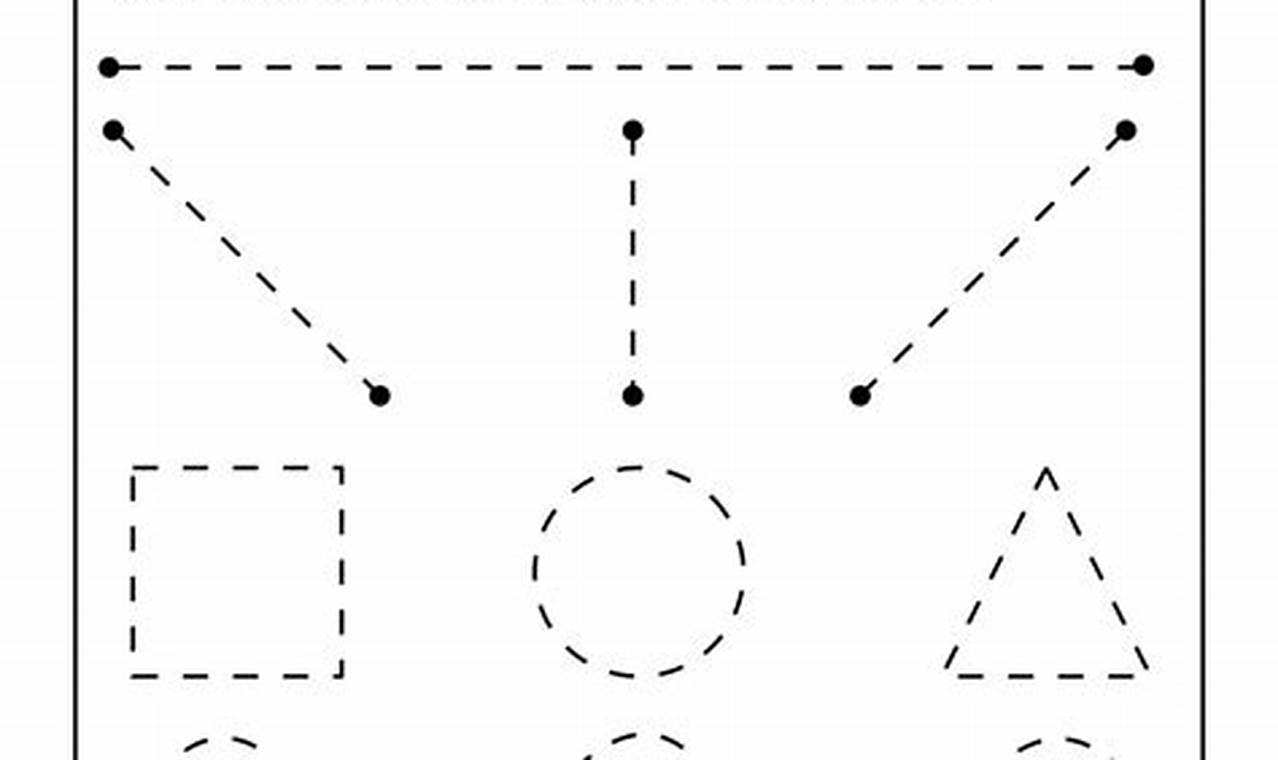Fine motor skills are foundational for many essential tasks children encounter daily, from writing and drawing to buttoning clothes and using utensils. The development of these skills is particularly crucial for children with special needs, as it fosters independence and enhances participation in various activities. Worksheets that focus on easy fine motor tracing for special needs provide a structured and engaging method to support this development. Here, “tracing” functions as a noun, representing the activity and the resulting marks, and is the main point because the article focuses on the practical application and benefits of tracing activities.
The primary learning benefits derived from worksheets designed for easy fine motor tracing for special needs include improved hand-eye coordination, enhanced pencil grip, and strengthened hand muscles. These improvements translate to greater dexterity and control, which are essential for handwriting, drawing, and other fine motor tasks. Successfully completing tracing activities also boosts confidence and fosters a sense of accomplishment, encouraging continued effort and learning.
This worksheet focusing on easy fine motor tracing for special needs features a variety of simple and engaging patterns, shapes, and lines designed to accommodate varying skill levels. The bold, clear lines are visually accessible and easy to follow. Sufficient spacing between the lines allows for error tolerance and promotes a positive learning experience. The worksheet is designed to build foundational skills progressively, starting with straight lines and gradually introducing curves and basic shapes.
To use the easy fine motor tracing for special needs worksheet effectively, begin by ensuring the child is seated comfortably with good posture. Provide a thick, easy-to-grip pencil or crayon. Demonstrate how to follow the lines carefully, emphasizing a slow and controlled pace. Encourage the child to trace each line multiple times. Break the task into smaller, manageable segments to prevent fatigue and maintain engagement. Positive reinforcement and encouragement are essential throughout the activity.
To further support fine motor skill development, consider incorporating related activities into the daily routine. Activities like playing with playdough, building with blocks, or using puzzles can complement the skills practiced on the worksheet. Explore other free resources on Kidtraces.com for additional worksheets that focus on letter formation, number recognition, and other pre-writing skills. These complementary resources offer diverse opportunities to reinforce learning and promote continuous progress.
In conclusion, the worksheet offering easy fine motor tracing for special needs provides a valuable tool for supporting fine motor skill development in children with special needs. Its structured design, clear instructions, and focus on foundational skills make it an effective and engaging learning resource. Download the worksheet today and witness the positive impact it can have on your child’s development. Explore more free worksheets on Kidtraces.com to continue supporting continuous learning and skill enhancement.
